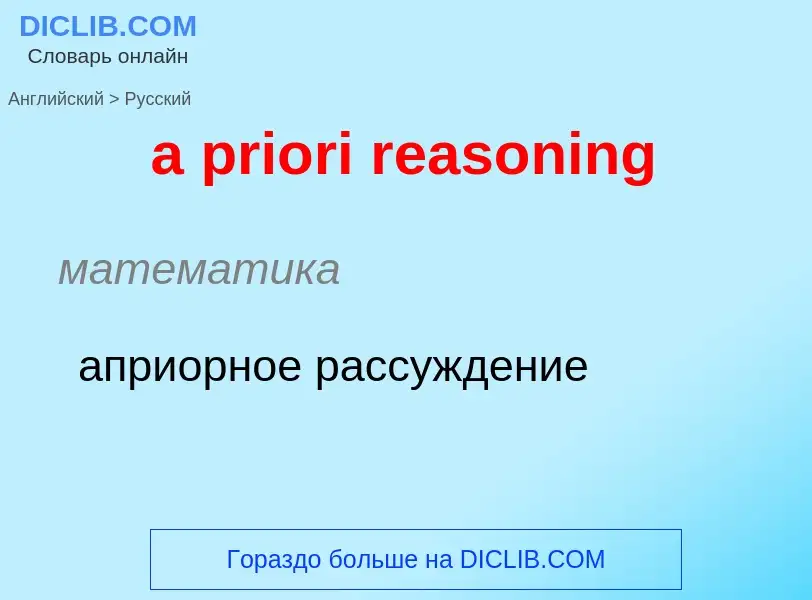Tradução e análise de palavras por inteligência artificial ChatGPT
Nesta página você pode obter uma análise detalhada de uma palavra ou frase, produzida usando a melhor tecnologia de inteligência artificial até o momento:
- como a palavra é usada
- frequência de uso
- é usado com mais frequência na fala oral ou escrita
- opções de tradução de palavras
- exemplos de uso (várias frases com tradução)
- etimologia
a priori reasoning - tradução para russo
математика
априорное рассуждение
Definição
Wikipédia
A priori ("from the earlier") and a posteriori ("from the later") are Latin phrases used in philosophy to distinguish types of knowledge, justification, or argument by their reliance on empirical evidence or experience. A priori knowledge is independent from current experience (e.g., as part of a new study). Examples include mathematics, tautologies, and deduction from pure reason. A posteriori knowledge depends on empirical evidence. Examples include most fields of science and aspects of personal knowledge.
The terms originate from the analytic methods found in Organon, a collection of works by Aristotle. Prior analytics (a priori) is about deductive logic, which comes from definitions and first principles. Posterior analytics (a posteriori) is about inductive logic, which comes from observational evidence.
Both terms appear in Euclid's Elements and were popularized by Immanuel Kant's Critique of Pure Reason, an influential work in the history of philosophy. Both terms are primarily used as modifiers to the noun "knowledge" (i.e. "a priori knowledge"). A priori can be used to modify other nouns such as "truth". Philosophers may use apriority, apriorist, and aprioricity as nouns referring to the quality of being a priori.

